DAVE'S DIARY - 14 JULY 2007 - GEORGE MCCORKLE OBITUARY
GEORGE MCCORKLE RIP @ 60
BORN
GEORGE FREEMAN MCCORKLE - CHESTER, SOUTH CAROLINA - 1947
DIED LEBANON, TENNESSEE - JUNE 29, 2007
LAST OF THE SINGING COWBOYS FINDS FIRE ON THE MOUNTAIN
"He
said he came from down Texas way/ the cowboys were tough, the women the
same way/ said he was a star back in 31/ Hollywood liked him for some
songs that he had done." - The Last Of The Singing Cowboys - George
McCorkle
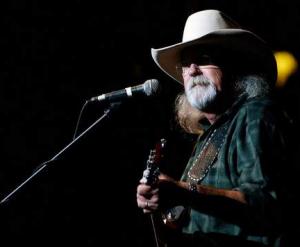 |
When
George McCorkle recently died at 60 he was the third member of Dixie
rock pioneers Marshall Tucker Band to burn out prematurely.
|
Artists diverse
as chart topping surfing Californian cowboy Gary Allan, the Oregon western
country queen Joni Harms, singing actor John Corbett and 7th Heaven star
Beverley Mitchell also cut his tunes in his post MTB era.
At the time of his death he had 210 of his songs listed on the BMI publishing
site.
McCorkle also wrote a brace of country rooted songs for his solo disc
and penned the more rustic tunes for MTB.
But Fire On The Mountain - a tune initially rejected by Charlie
Daniels - was his best -known hit.
McCorkle learned Daniels was working on an album with that title and quickly
wrote his song.
Daniels didn't use it so the Marshall Tucker Band cut it for their 1975
disc Searching For A Rainbow.
Fire on the Mountain became the first MTB Top 40 hit and one of
the best-known songs in Dixie rock.
McCorkle wrote or co-wrote MTB tunes Silverado, Life in a Song, Last
of the Singing Cowboys, Dream Lover, Sweet Elaine, I Should Never Have
Started Loving You, Jimi, Windy City Blues, Disillusion, Paradise, Tonight's
The Night For Making Love, My Best Friend and Foolish Dreaming.
Although he quit the band in 1984 and moved to Carthage near Nashville
in the mid nineties to pursue a writing career and session work, he didn't
sever his links.
George performed with Marshall Tucker Band before 17,000 fans in August,
2006, in Nashville.
He also wrote three songs on the band's newly released The Next Adventure
CD and played on their Carolina Christmas CD (2005) for which
he wrote the track Leave the Christmas Lights On.
But McCorkle was diagnosed with cancer early in June and died less than
a month later on June 29 at the University Medical Centre in Lebanon,
Tennessee.
Wife Vivienne and son, Justin McCorkle, of Pauline, South Carolina, survive
the prolific writer and musician.
THE FUNERAL
| McCorkle
was transported from the chapel to his graveside service in Spartanburg
in a sleek black, gray and gold custom tour bus. It was adorned with a graphic of an upward-pointing arrow and highway gracing the top rear showed the way to McCorkle's ultimate destination. Surviving original Marshall Tucker Band members Paul Riddle, Doug Grey and Jerry Eubanks and several musicians who have played with the band since the mid-1980s, attended the services. |
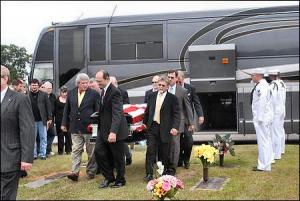 George McCorkle' Funeral |
They included
bassist Frank Wilkie, guitarist Rusty Milner, drummer David "Ace"
Allan and bassist Tim Lawter.
The Allman Brothers Band sent a floral arrangement nearly six feet tall,
shaped like a mushroom, invoking a symbol made famous on the inside of
their fold-out LP cover for "Eat a Peach," an album dedicated
to their own fallen band-mate, Duane Allman.
Many other famous peers sent flowers, including the Charlie Daniels Band.
McCorkle's road crew honoured him with a towering arrangement of white
flowers made into the shape of a guitar.
Toy's Caldwell's daughter, Cassidy, sent an arrangement that featured
a toy electric guitar among the many flowers.
THE LEGACY
McCorkle's
music inspired a vast army of hard edge country rock artists such as Travis
Tritt, Hank Williams Jr. and Kid Rock.
His guitar work was an integral element in the group.
"George was such a big, big part of the sound of that original Marshall
Tucker Band," said Charlie Daniels, a longtime friend.
"If you took him out of it, the Tuckers would not sound like the
same band. He played that electric guitar wide open. He was a very gentle
soul, and sweet sort of person, so even-keeled. I don't know hardly what
else to say about George. He was one of the good guys."
McCorkle was equally proud of his country blues-rock nuptials.
"Kids aren't ashamed of country anymore, and they're not ashamed
of blues," George told interviewer Frye Gaillard in an interview
that was included in Gaillard's 1978 book, Watermelon Wine: The Spirit
of Country Music.
"And when you mix it all together and the music gets to cooking,
it's a pretty exciting thing to be around."
TUCKER TRAGEDIES
"And after three hours of maybe more/ a lady grabbed him by his arm and showed him to the door/ the bartender said 'he's blind, you see'/ don't tell him the only audience he had was you and me/ causse he's the last of the singing cowboys/ singing songs of desperation and joy." - The Last Of The Singing Cowboys - George McCorkle
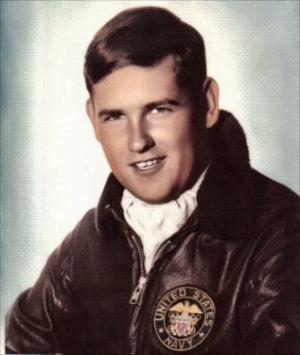 |
McCorkle
was the third member of the Marshall Tucker Band to die far too young.
Although the current, touring version of MTB contains only one original member, singer Doug Gray, it still records McCorkle's compositions. George recently played with The Renegades of Southern Rock - a band made up of original members of Wet Willie, the Outlaws and other groups. He also released a solo album American Street, on October Street Records in 1999. George produced the album himself at two studios in Nashville and Moore, South Carolina. |
"That
was a dream come true," McCorkle revealed at the time.
"It was a major thing for me to step out and do something like that."
The album featured The Journey Home - a tribute to Toy Caldwell.
"I guess playing with Toy was a blessing, that's the only way to
put it," McCorkle said in an interview about the disc.
"He was always out of control but at the same time totally in control!
Seemed to stay on the edge and defiantly one of the most talented people
I've ever known. For some reason we had a thing together that required
no communication to know what was going on all the time. I could always
tell what he was going to do before he did it and that freed him up to
go where he wanted to without any worry. The rhythm section of MTB had
a very unique thing and that was the reason for a three-piece section!
Then again I do love the groove and my ego is not so big that I need to
be in the spotlight all the time! I do love playing rhythm! Toy's contribution
to music can be heard all over! I feel very fortunate to have shared part
of my life with that band, and I too, still today rely on Toy's influence!"
Another highlight was a revamp of Fire On The Mountain - a slower,
more country, acoustic version than the original MTB hit.
There was a talk verse at the end of the song with country instrumentation.
McCorkle also wrote another peers' eulogy Ronnie, Duane And Troy
but it's not clear if it was recorded.
MARSHALL TUCKER BAND EXIT
"Every day over by the store/ there's an old guitar player/ playing music by the score/ he's singing about Jesus and praising the Lord/ telling stories about the old days/ back when he was in the war." - Gospel Singin' Man - George McCorkle.
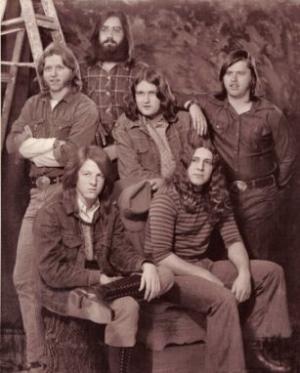 |
McCorkle
and drummer Paul Riddle quit the Marshall Tucker Band at its peak. "Well, I left the band in 1984," McCorkle explained said in an interview. "Actually, of the original band, I was the first one to want to leave. I personally made the decision to part from the band because I'd had enough. We were all musically headed in so many different directions. Everybody had ideas of what they wanted to do. And to be honest with you I was burnt out. I was dealing with some demons. I needed those demons dealt with. I made the decision I had to quit. So, I called and discussed it with everybody and everyone understood. Then I had a long conversation with Toy about it since we had been friends since we were seven or eight years old. So, we had a long discussion about it, and I told him that my decision was firm. |
Toy said,
"Well, I don't feel I would want to play guitar with the Tucker Band
if your not there".
So he made his decision to leave too. Then Paul Riddle expressed to me
personally, that since the two guitar players and all the main songwriters
were gone, he was gonna leave also. I made it personally clear that in
my decision to leave, I did not want to influence anyone else in the band.
I told them I would work with anybody to make sure they would fit into
the band. They had my blessing. Doug and Jerry decided to continue touring.
They too had my blessings and I think the blessings of Toy and Paul too.
To this day I stick firmly to it. I would love to play a Marshall Tucker
reunion if Toy and Tommy could come back to life. That's the only way
it could be done. That is the only way I would care to do it. I played
at a volunteer jam here in Nashville, it was the only time I have ever
seen or heard the new band. Rusty Milner was playing guitar with them
at the time and I have know Rusty since he was a youngster. The other
guys in the band I didn't know well. But, Rusty I have known since he
was a child. I think I played two or three songs with them at that Volunteer
Jam."
SPARTANBURG ROOTS
"I strap on my guitar just like a 45/ I pray each night my aim is true/ I'm shooting for the heart, a looking in your eyes/ singing the cowboy blues" - Cowboy Blues - Mike Geiger, Michael Huffman- George McCorkle.
McCorkle
was born in Chester, South Carolina, but raised in nearby Spartanburg
from the age of two.
As the youngest of three brothers he grew up aware of the long and hard
hours mother Mildred worked at the cotton mill.
"We were a typical South Carolina mill family," George recalled
in his web page bio. "Very poor."
So he developed a strong and active work ethic.
Although his greatest achievements were from music, he took gigs as a
dental lab technician, race-car driver, and car salesman, owner of both
a glass company and a car lot to supplement his professional music livelihood.
He believed his work ethic has its roots in his "meagre beginnings"
and "growing up Southern".
He was drafted into the navy as an 18-year-old graduate of Spartanburg
High School and during two years service was stationed on the USS Little
Rock at Gaeta, Italy.
Music helped George survive while away from friends and family in Spartanburg.
It was a key of his life from his teens as he listened to his brothers
Chuck and Tony play in bands in the Spartanburg/Greenville area.
He borrowed Chuck's guitar and learned to play it and listened to radio
station WLAC out of Nashville and loved the blues he heard broadcast.
"The blues was like a magnet," remembers George. "I liked
to listen to B.B. King, Albert King and guys like that. Then I would try
improvising their songs with my own ideas." Other musicians such
as the "funky playing" Jimmy Nolen, rhythm guitar player for
James Brown, would greatly influence George's guitar evolution.
"I'd play what I felt they were playing but in my own style."
While working part-time in a drug store at the age of sixteen, George
bought a Gretsch guitar paid for via "the instalment plan."
STAGE DEBUT
| George's
stage debut was playing with The Originals at an American Legion hut.
He then graduated to The Rants - a high school band that played English and Beach music at frat parties, teen clubs and high school events. After his discharge from the Navy, George decided to return to what he loved most in life: making music. George and long time friend Toy Caldwell formed The Toy Factory. Although the Toy Factory was successful George temporarily teamed up with others to play in Pax Parachute. |
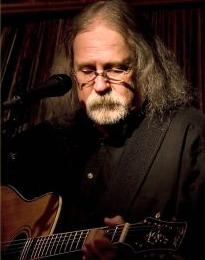 |
His ascension to the Marshall Tucker Band was his career catalyst.
"Playing
guitar with Toy Caldwell wasn't just playing guitar, it was sharing a
mind," McCorkle revealed.
"With me at his side he had the freedom to do whatever came into
his mind and I could instinctively interpret whatever that was and experiment
with him. And Toy had a heart of gold."
George was a focal point of major MTB albums Carolina Dreams, Searchin'
For A Rainbow, A New Life and Where We All Belong.
SONG WRITING
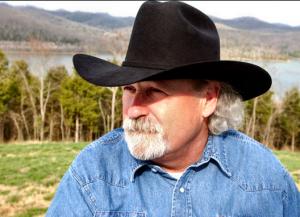 |
George
also loved creating songs - he wrote his first song while still in
high school. Although he never wrote with Toy Caldwell, he collaborated with others to create many memorable songs. "I love co-writing with others," George said. "I like to see where their influences and personalities take us." |
Although he would write many memorable songs with peers he experienced major success writing solo.
Fire on
the Mountain - his first recorded solo songwriting effort generated
recognition and fame.
The lyric sheet for this Marshall Tucker Band hit, which opens the album
Searchin' For A Rainbow, is in the Country Music Hall of Fame.
And a label from that record is part of a display in the Aerospace Museum
of the Smithsonian Institute.
Another highlight was his song Last of the Singing Cowboys - focus
of MTB album Running Like the Wind.
McCorkle also enjoyed a successful career writing for country peers.
"Most of the time, I have a writing job," McCorkle said in a
recent interview.
"I write for a publisher, Off The Green Publishing in Nashville and
I own a small publishing company. Ninety percent of the time I write and
I produce songs and I do some studio work."
Country star Gary Allan recently cut Cowboy Blues, a song George
wrote with Mike Geiger and Michael Huffman for his album Smoke Rings
In The Dark.
George also penned the offbeat new song Jesus Never Had No Motorcycle.
McCorkle wrote about six songs a week - other co-writers included Dean
Dillon, Tim Krekel, Buddy Blackmon, Vip Vipperman, Noah Gordon and J B
Rudd.
JONI HARMS
"The sun is rising in my rear view/ I've been driving all night long/ last run's still racing through my mind/ it was our bets time since San Antone." - A Little Bit Of Love - Joni Harms-George McCorkle-D Scott Miller.
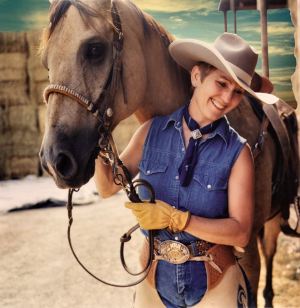 |
McCorkle
also wrote a brace of songs with Oregon country singer and quarter
horse breeder Joni Harms. The duo penned Swing on one of several sessions at Harms family ranch at Canby, homesteaded by her great, great grandfather in 1872. Harms recorded Swing for her 1998 Warner Western album Cowgirl Dreams. "George came out to the ranch and visited and we wrote several songs together," she added. < Joni Harms |
"I used to write by myself on the ranch and when I was signed by Jimmy Bowen to Capitol and he introduced me to some many writers and gave me opportunities I would not have had if I wasn't signed to Capitol."
Harms and
McCorkle's co-writer on A Little Bit Of Love from her 2003 disc
Let's Put The Western Back In Country is Virginia born Scott Miller
who made three albums with the V-roys before recording with his band The
Commonwealth.
The singer's character, towing her steed in a horse trailer with her dog
Shotgun in the cabin, yearns for human romance in their rural love lament.
McCorkle also wrote Love Never Hurt Nobody with Harms and Buddy
Blackmon for the same disc.
Other co-writers included fellow Spartanburg native Marshall Chapman,
an outlaw country chanteuse whose family owned the local cotton mill where
George's mother Mildred worked, and Mike Battle.
He also drew inspiration from Australia when he wrote Boomerang Heart
with Buddy Brock and Michael Huffman.
JAY BOY ADAMS
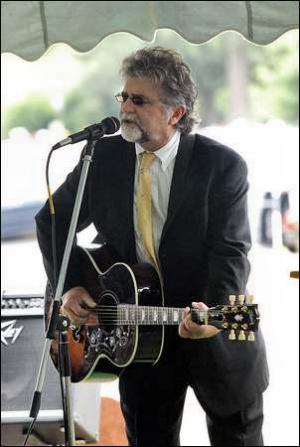 |
Texas
songwriter and musician Jay Boy Adams, a prolific touring artist
in the 1970s and early 1980s, performed with Southern rock icons
such as the MTB, ZZ Top and The Allman Brothers Band. But Adams said he told McCorkle that he would be unable to, since he thought his death would precede McCorkle's. Adams
said at the time of their conversation he did not imagine he would
be playing the song at McCorkle's funeral just four months later. |
But he did
- singing as he strummed along on an acoustic guitar.
Ironically the song's lyrics say, in the end, one needs only six friends.
"Now my old man said you only need six friends to outlive you until
the bitter end, to carry you to that hole in the ground," Adams sang.
"If you can count your friends on one hand, you only need one more
on the other hand to take you home."
Adams also lead the attendees in a sing-along rendition of Fire on
the Mountain.
As the final chords faded, Adams turned to McCorkle's casket and said
softly, "Rest in peace."
A Navy Honour Guard placed the American flag above McCorkle's casket and
a petty officer presented it to McCorkle's widow Vivienne.
Volleys of shots rang out into the early afternoon sky, and as they echoed
into the oaks, a lone bugler blew Taps into the breeze.